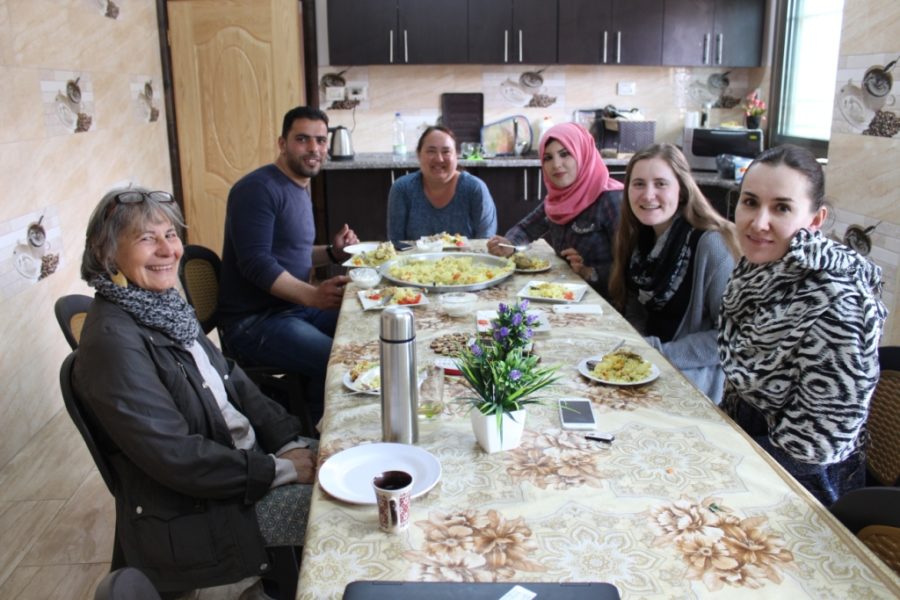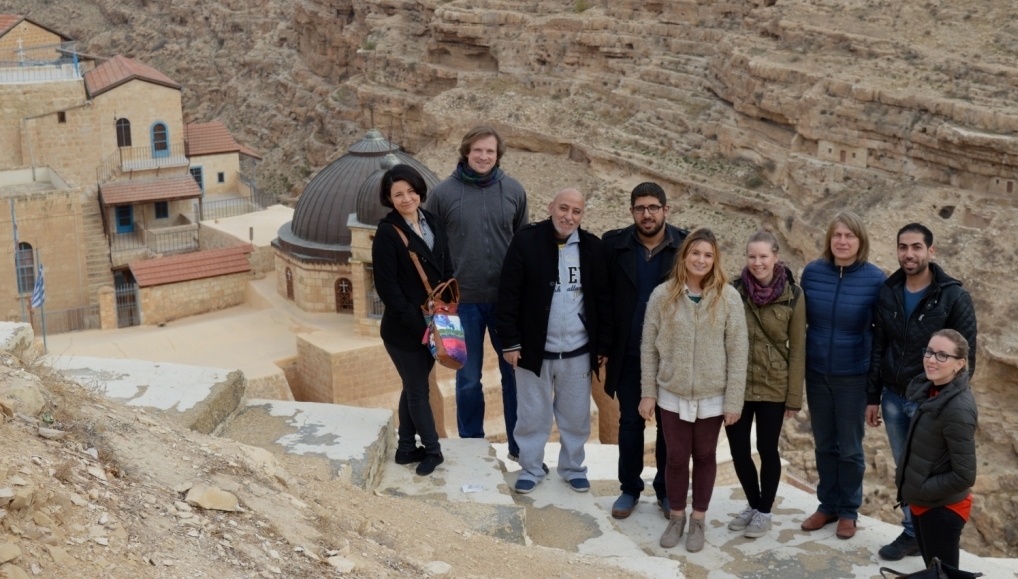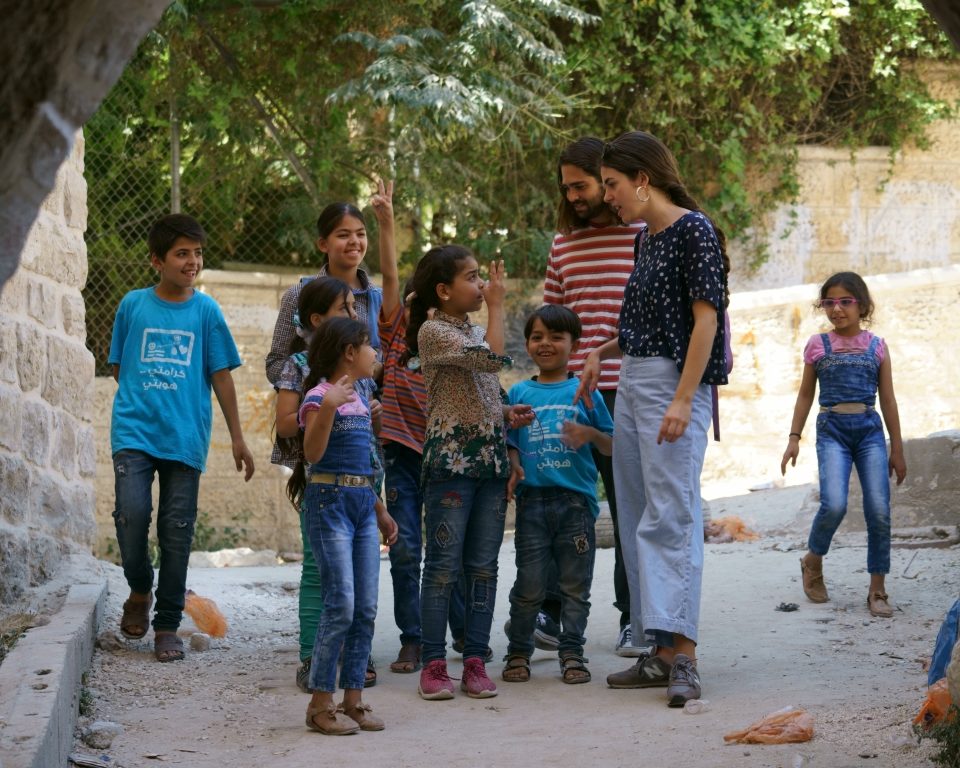8 Lessons You Will Learn While Volunteering in Palestine: Volunteering in Palestine not only helps Palestinians, it also helps the volunteer. By taking the time to explore a new culture and live in a foreign community, volunteers will not only be learning about another part of the world, but they will also be learning about themselves. Volunteering in Palestine will hold many surprises for volunteers. No matter how much you have read, listened to, watched or discussed Palestine prior to traveling here, as one of our volunteers you are bound to encounter many surprises.
The lessons obtained volunteering in Palestine can be used to both boost one’s professional life and their personal one. Here, we’ll take some common lessons that foreign volunteers come away with after spending time in Palestine.
Palestine is a Beautiful Country and its worth to visit
Whether you enjoy the sight of tree-covered hills that seem to go on forever or the glow of city lights along an urban skyline, Palestine has something to offer everyone in terms of aesthetic appeal. Smaller towns in the south, such as Beit Sahour and Beit Jala, are surrounded by greenery, and the mountainous landscape makes an awe-inspiring view easy to find. The more arid regions, such as those surrounding the Dead Sea, provide a stunning contrast to the life that they sustain.
The metropolitan areas also contain a wealth of amazing things to see; the souq of Hebron is colorful and lively; the architecture of much of Jerusalem’s Old City dates back thousands of years, transforming a quick walk toward Jaffa Gate into a trip back through time; the street art of Bethlehem illustrates the struggles of its inhabitants, capturing the humanity of a society in turmoil. Beauty is abundant in Palestine, in many forms and many places.
Palestinian food is typically fresh and healthy
You won’t find any frozen dinners or canned soups, and fast food is far less common than in a Western country. Produce is a staple of most snacks and meals, and often fresh from the garden. Many products are locally sourced, and if you’re lucky enough to spend time with a Palestinian family, you’ll sample a variety of delicious homemade dishes.
The Palestinian table is always full of a variety of dishes despite the weak economy. Palestinians are renowned for presenting delicious yet affordable food that mainly contains meat and ghee. There are not many vegetarians in Palestine, and while there are no specific statistics on the precise number, you can tell that there are not many because most restaurants base their menus around the meat.
Palestinians start their day after having a rich breakfast that usually includes pita bread, labneh (close to sour cream), sliced tomatoes and cucumbers, olive oil with Za’atar (a mixture of dried herbs) as well as fried or boiled eggs, and in some cities hallum cheese or yellow cheese and fuul (fava bean stew). Tea is always there to accompany any meal.
Lunch in Palestine has more options than breakfast. For instance, Palestine is literally full of restaurants that sell different types of sandwiches. The most preferred types of sandwiches are falafel, a deep-fried ball or patty made from ground chickpeas, fava beans, or both, and shawrma, which is stuffed with meat and salad. 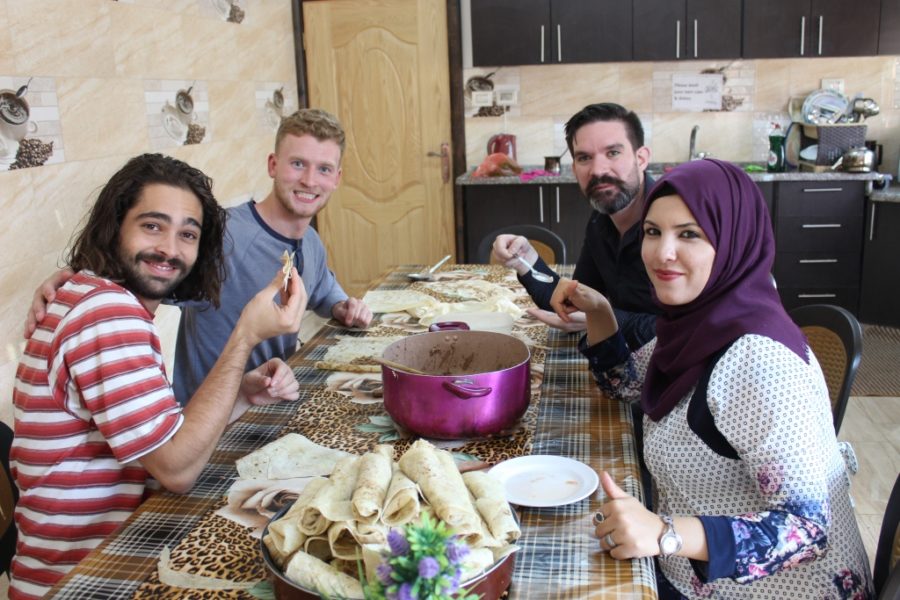
Palestinian People Enjoy Their Lives Anyway
Despite the harsh political realities in Palestine, Palestinians continue to maintain a normal lifestyle under the constraints they are given. They have families and friends, enjoy vacations, and fall in love. Palestinians can teach you that even under harsh circumstances people still need and are capable of happiness.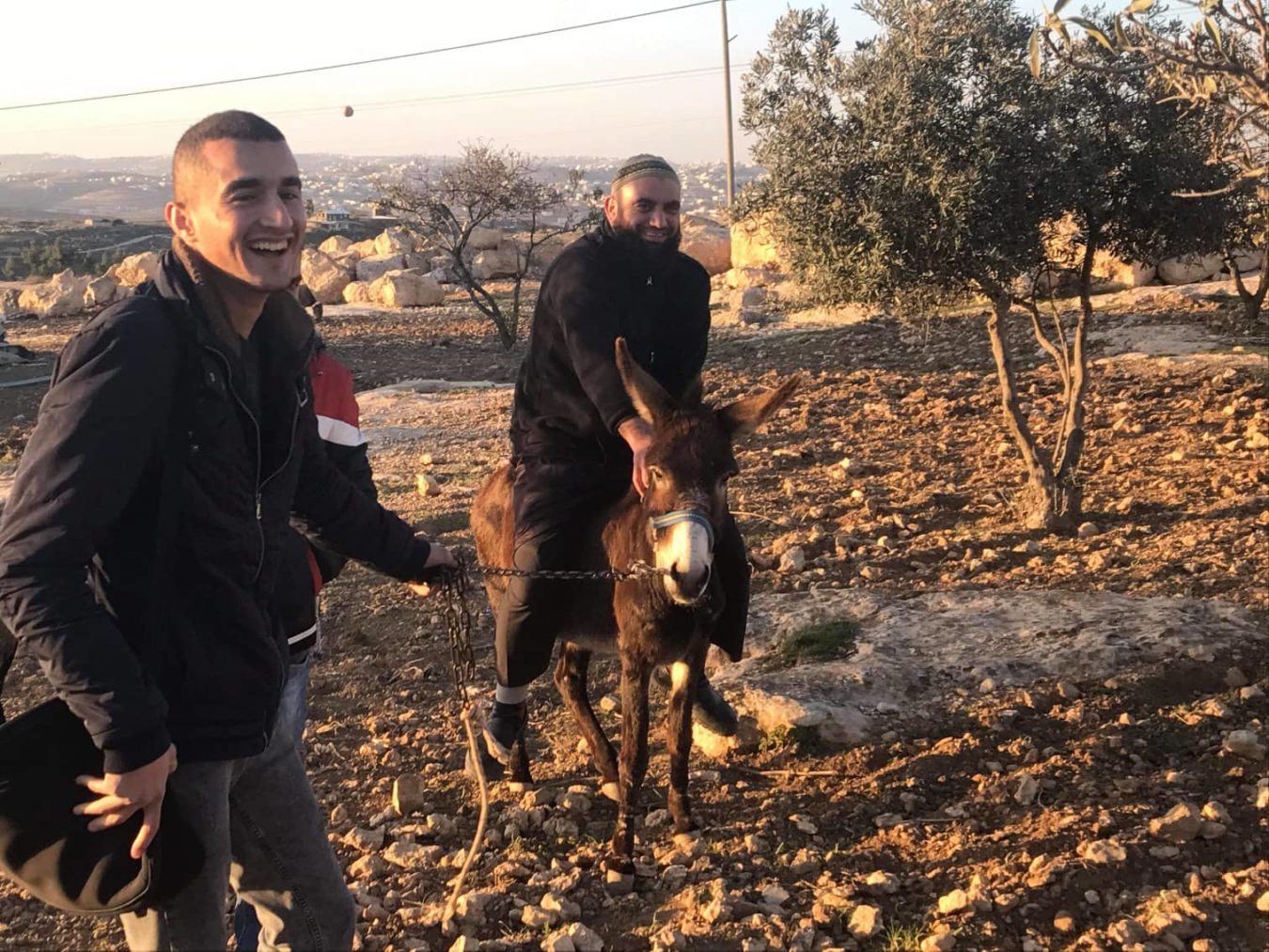
We Are Products of Our Environment
Volunteers often notice things about themselves which they didn’t notice when they were in their home countries. Being exposed to different habits and viewpoints often help expose one’s own ingrained habits and viewpoints. Seeing the different ways that the sexes are treated, or the role of religion and society in Hebron for example, may show volunteers how views they’ve always taken for granted, aren’t shared throughout the world.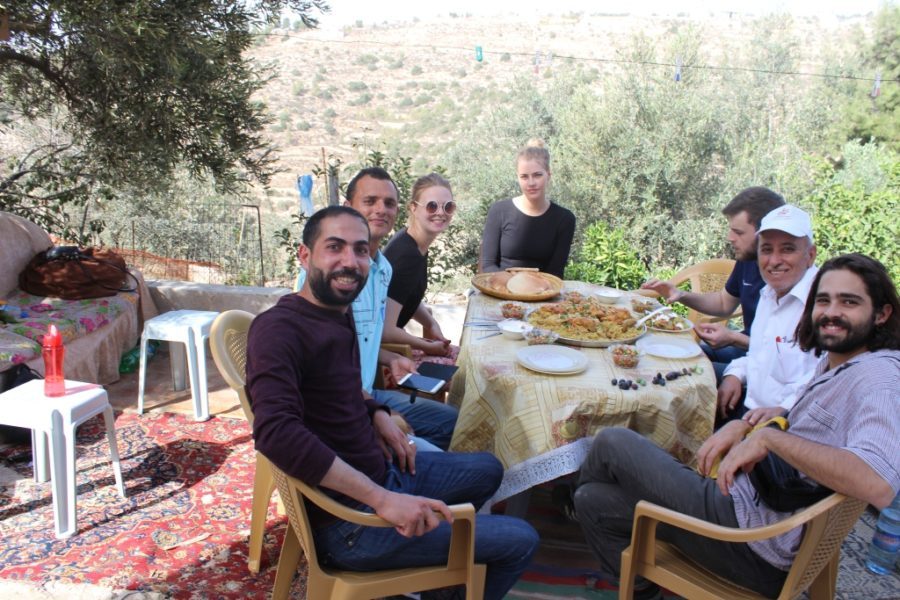
Language is an Important Way to Relate to Others
When volunteers first arrived in Palestine, they may feel awkward around those who can only speak a few words of English and whose language they only know a few words. Gradually, however, as their Arabic improves, they’ll find themselves relating more and more to those around them, realizing in the process that speaking the same language helps people feel closer to one another.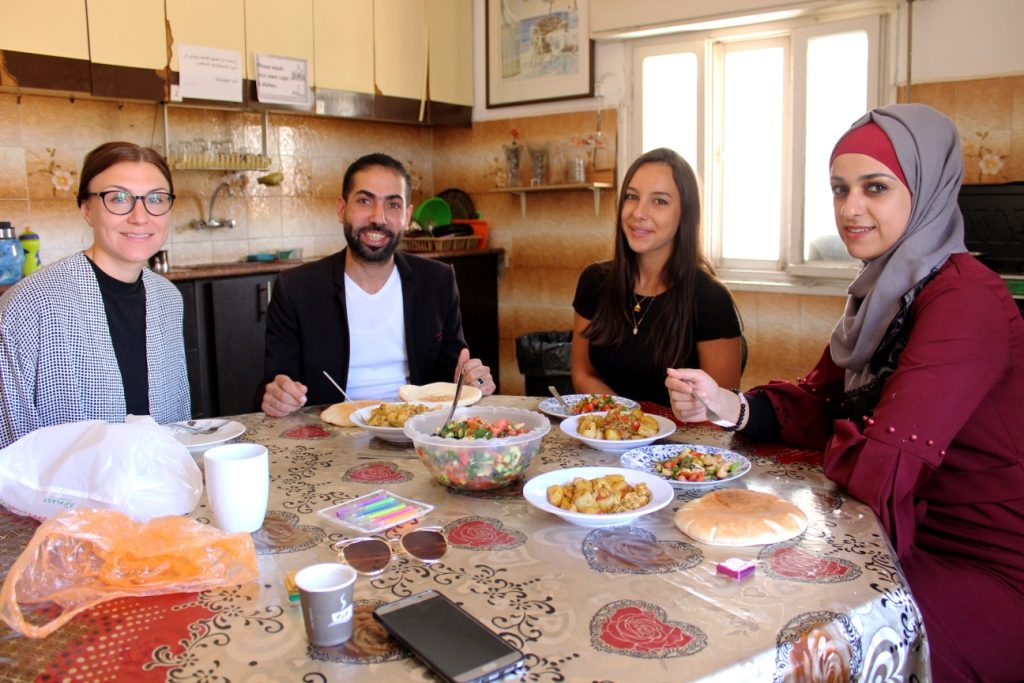
There are Some You’ll Never Understand
Because we grow and learn in a certain cultural context, there are some things we can never understand about different cultures. One volunteer in Palestine said, “I didn’t grow up religious, so it’s hard for me to imagine getting upset over who controls this holy place or that one.” This is understandable, and it’s better than you know that you can’t know these things.
Kids are the Same Everywhere
While people differ in cultures and practices around the world, they also common traits. Children are a good example. Volunteers find that the young students in Palestine and around the West, Bank are a lot like the ones in their home countries. They joke, laugh, dream, and are curious. They play soccer, watch TV, and take selfies just like your little brothers and sisters
The lessons volunteers in Palestine obtain from their time help them become more self-aware and humane global citizens. Often, they’ll discover things that they didn’t know they didn’t know.
Unexpected hospitality of the Palestinian people
The hospitality of the people in Palestine will undoubtedly surprise any of our future volunteers, even if you are reading this article, it will not compare to the actual experience of being welcomed into our culture and city. The resilience and positivity of Palestinians are undeniable and it is the strength of their community which makes this possible. The community in Palestinian culture is held together by family and living with a host family ensures you will get firsthand experience by becoming one of the family.